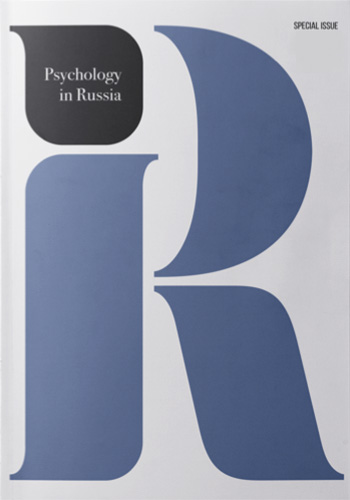Psychology in Russia: State of the Art, Moscow: Russian Psychological Society, Lomonosov Moscow State University, 2017, 1, 226 p.

2017
Volume 10 (01)
Volume 10 (01)
Psychology and Education
Special section “Psychology and education”
-
The influence of psychology on Russian didactic terminology (early 18th century — first half of 20th century)
-
Lenses on metacognition: Teachers’ perceptions toward strategies in reading in a Pakistani context
-
The modern Russian teacher: Studying awareness with the use of the semi-structured interview
-
The interconnection of learning ability and the organization of metacognitive processes and traits of personality
-
Components of metacognition and metacognitive properties of forecasting as determinants of supra-situational pedagogical thinking
Social psychology
-
Power, attraction, and reference in macrolevel social relations: An analysis of closed groups and closed societies based on the psychology of the “Soviet person”PDF HTML8260“ CITE
Radina N.K., Koskina M.V. (2017). Power, attraction, and reference in macrolevel social relations: An analysis of closed groups and closed societies based on the psychology of the “Soviet person” and the “post-Soviet person”. Psychology in Russia: State of the Art, 10(1), 117-129.
copied
-
Adaptation resources in subjects with social and psychosomatic disadaptation: a comparative analysis
-
Psychometric properties of the Russian version of the utrecht Work engagement scale (UWES-9)
Psychology and bioethics
-
Biobanking — a new environment for psychological research and applications
-
Studying anti-vaccination behavior and attitudes: A systematic review of methods









